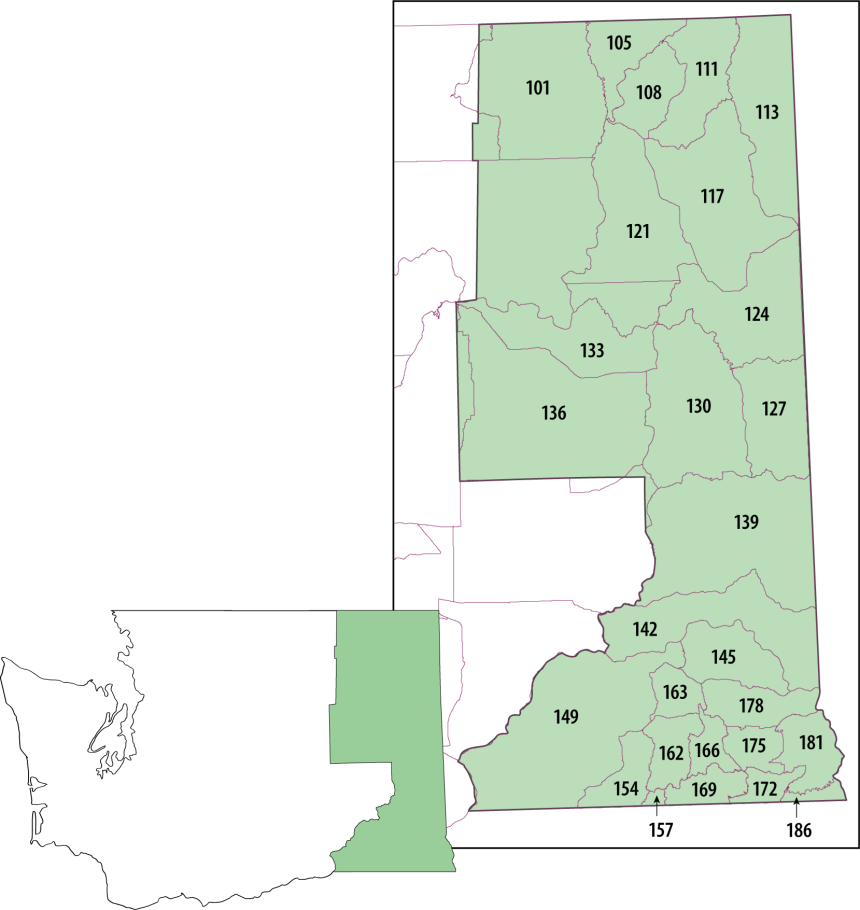A rule adopted by the Washington Fish and Wildlife Commission in 2016 allows people to legally salvage deer and elk carcasses in the state. Nearly 20 other states have adopted similar rules.
The rule specifically applies to deer and elk killed by motor vehicles. Only elk – not deer – may be salvaged in Clark, Cowlitz, and Wahkiakum counties, because federal laws prohibit handling endangered Columbian white-tailed deer in southwest Washington.
Anyone who takes possession of a deer or elk carcass must obtain a free, printable permit from WDFW within 24 hours. The permittee must then keep a hardcopy of the signed and dated salvage permit with the meat until all of the edible parts are consumed.
The Washington Department of Fish and Wildlife does not guarantee that salvaged meat is fit for consumption, and encourages those planning to salvage deer and elk carcasses to review information on food safety guidelines for game meat. The new salvage rule also does not authorize trespassing on private property or ignoring highway-safety rules.
- Open Data link to see 2016-2019 deer and elk salvage permit data.
- Open a webmap to query salvage permits (August 2020 to present)
- Download the data for salvage permits (August 2020 to present)
Provisions of the new rule
- It is permissible to salvage and transport a deer or elk that is accidentally killed by a motor vehicle collision except for any deer killed by a motor vehicle collision in Clark, Cowlitz, and Wahkiakum counties.
- A salvage permit must be obtained from the department within 24 hours of taking possession of the animal. Permits may be obtained on the department's website or at department regional offices.
- Big game licenses and tags cannot be used for the purpose of salvaging motor vehicle-killed deer or elk.
- The entire carcass, including entrails, of the animal must be removed from the road right of way. As a reminder, per Washington, Oregon, Idaho, and British Columbia rules, transporting carcasses across state or provincial lines is prohibited unless certain criteria are met. Do not transport carcasses across state or provincial borders before reviewing carcass import regulations on the CWD Alliance webpage for your home state or province.
- Any meat an individual deems unfit for human consumption or unusable animal parts must be disposed of pursuant to WAC 246-203-121. Individuals salvaging and consuming this meat do so at their own risk. The department makes no guarantee as to the fitness for consumption of deer or elk collected under a salvage permit. (See food safety guidelines for game meat.)
- An individual may not kill an injured or wounded animal for the purpose of salvage. Only a law enforcement officer or individuals or entities authorized by the department may euthanize an animal injured in a motor vehicle collision, whether or not the animal is taken for salvage. Possession of wildlife in violation of subsection (4) is punishable under RCW 77.15.750.
Test deer and elk salvaged in Eastern Washington
for chronic wasting disease
If you salvage a road-killed adult deer or elk (no fawns or calves) in WDFW's Region 1 (see map below) please visit the chronic wasting disease surveillance website to read how you can have your deer or elk tested for CWD. Only the head of the animal is required for sampling. You can look up your CWD test results by entering your Salvage Permit ID in the test results lookup tool. Results may take weeks to post depending on laboratory demands.
Application
